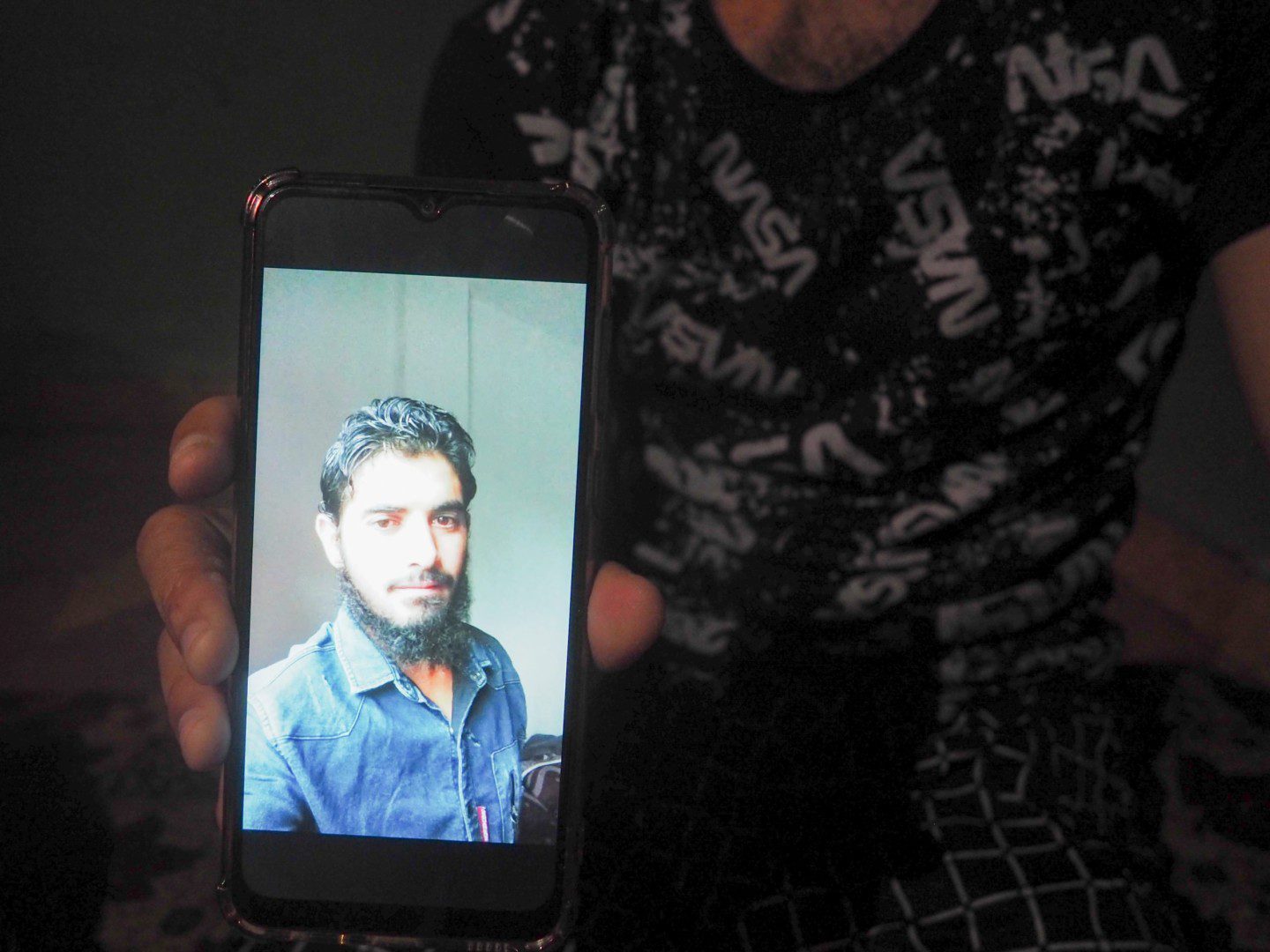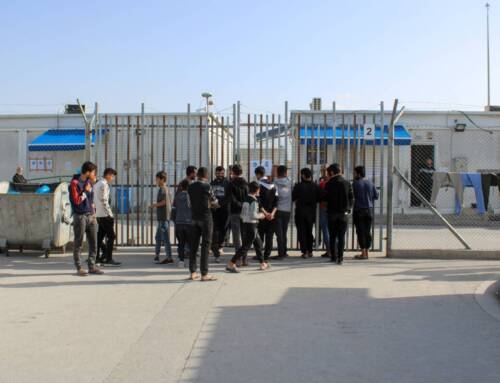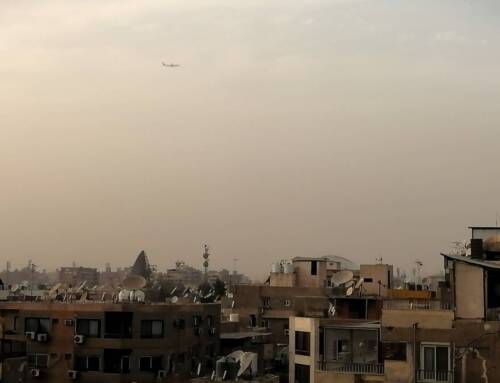Lebanese officer indicted for torture death of Syrian refugee back on the job
Four of the five Lebanese State Security officers indicted last November for the torture death of Syrian refugee Bashar Abdul Saud were released on bail this month, one of whom is back at work, while the victim’s family and lawyer have been pressured to drop their complaint.
28 April 2023
ATHENS — Four of the five Lebanese State Security officers indicted by a military court last November for the in-custody torture death of Syrian refugee Bashar Abdul Saud were released on bail this month, one of whom is now back at work, while the victim’s family and lawyer have been pressured to drop their complaint.
Abdul Saud, a 30-year-old Syrian refugee and a father of three, was detained in Beirut’s Shatila refugee camp in August 2022 by the local Palestinian security apparatus and handed over to Lebanese State Security officers. He was taken to the agency’s headquarters in Tebnin, southern Lebanon. Hours later, he was dead. A video of his body posted online showing clear signs of torture sparked an outcry and spurred an investigation that led to the detention last September of five officers who were indicted by a military judge in November.
At the time, the indictment appeared to be a rare move towards accountability in a country where torture complaints against the authorities have long gone unprosecuted. Were any of the five officers indicted in Bashar’s death convicted, the case would set a historic precedent.
The officers were initially held without bail, but four of the accused were granted bail and released in early April, Mohammed Sablouh, the Abdul Saud family’s lawyer, told Syria Direct. “The remaining officer, Youssef Berri, is still detained because he was the one who confessed to beating Bashar,” he said.
Sablouh, who specializes in torture cases, said he has received calls from multiple individuals connected to the defendants pressuring him to drop the torture complaint and, for the first time in his career, was offered a bribe to do so.
“One month ago, they called me and offered his family $12,000 to forget about this issue. They said ‘what a shame, think of Bashar’s kids,’ but I told them we don’t want money, we want punishment for this crime of torture,” he explained. Syria Direct could not independently confirm the content of the calls Sablouh received.
Back in the interrogation room
At least one of the indicted officers released after paying a 300 million Lebanese pound ($3,086) bail, Captain Hamza Khalil Ibrahim—son of the former head of the military court, Brigadier General Khalil Ibrahim—is now back on the job. He was transferred from the State Security headquarters in Tebnin to Nabatieh, and promoted from head of the investigations unit to head of the office, according to Sablouh.
“This is a lack of accountability at the administrative and institutional level,” Fadel Fakih, Executive Director of the Lebanese Center For Human Rights (CLDH) said. “State Security should have kept the person from going back to work until the investigation is done.” Fakih said Ibrahim had not been promoted, but only transferred, which Syria Direct could not independently confirm.
Given the gravity of the crime, Sahar Mandour, Amnesty International’s Lebanon Researcher, said granting bail to the indicted officers was “problematic, because there was an act of violence that led to murder.”
The United Nations Principles on the Investigation of Torture dictate that officials suspected of committing torture should be suspended from active duty during an investigation, Mandour noted. “He should not be back interrogating detainees before we know what happened with the man who died,” she added.
However, this behavior has a precedent. In 2017, Lebanese actor, Ziad Itani, was detained by State Security—the same agency that detained Abdul Saud—and filed a torture complaint the following year. “On 14 August 2020, 10 days after the Beirut Port explosion, President Michel Aoun promoted one of the officers Itani accuses of torturing him,” Mandour said. Itani’s case, like dozens of other torture complaints brought under Lebanon’s Anti-Torture Law 65 of 2017, remains frozen.
Hamda al-Said, Abdul Saud’s widow and the mother of their three young children, was shocked to hear that most of the officers accused in his death were back on the street. “They took my husband. He was young like a rose, and they killed him. Now, with such ease, they are out? And we don’t know yet who killed him?”
Justice in a military court?
Lebanon’s 2017 Anti Torture Law and Criminal Procedure Code dictate that torture cases belong in judicial courts and not military tribunals, but Abdul Saud’s case is being tried in a military court. “This does not align with Law 65 and our ratification in 2000 of the Convention Against Torture,” Fakih said. “I don’t think a military court can deliver justice to citizens—we analyzed the decisions taken by the courts and they are mostly biased towards the officers.”
“This case, and all cases of torture, should be transferred to the civil court,” Mandour added. “Violations of human rights need to be tried in a civilian court that respects the rights of transparency and the right to justice.”
In a military court the role of the plaintiff’s lawyer is limited, akin to an observer, Sablouh said. “In a military court, I have no capacity as the plaintiff, and in my experience, military tribunals always stand in favor of the security apparatus,” he explained.
In the first court session held in December, the court rejected Sablouh’s demand to include the video of Bashar’s cut and bruised body as evidence. “His body clearly showed that he died after being severely beaten, it was a violent death, but they didn’t accept the video as proof,” Sablouh said. “They want to obscure the truth.”
Mandour, who also attended the court session, said the accused officers argued that Bashar was violent and on drugs. Sablouh—who said he has encountered this strategy in previous torture cases—demanded to have medical report, “as established by Minnesota Protocol or Istanbul Protocol [international norms for investigating torture and extralegal executions] but they did not accept, and laboratory analysis has still not been included in the case,” he explained.
In the hearing, the officers stated that Saud had arrived in good health to their detention center in Tebnin. They argued that only one of the officers beat Bashar, and did so with a phone charger. “The military judge asked him ‘are you sure these wounds were inflicted by a phone charger, because the wounds are very serious and led to death,’ but they insisted on the story,” Mandour said. “It doesn’t need forensic evidence, the naked eye can see that these wounds cannot be inflicted by a simple wire like a phone charger. His body is ravaged by torture,” she added.
Abdul Saud is the sixth case—known to the public—of a death in custody following suspected torture by Lebanese authorities. “Torture in Lebanon is still being implemented systematically,” Fakih said. “We see there is a lack of accountability at the administrative, institutional and legal level, and there is a cultural issue where officers think that it is okay to torture people if they committed a certain crime.”
Impunity for torture has long been the norm in Lebanon, Sablouh added. “The security apparatus and judges in Lebanon are sending a message to officers that they can commit torture, because they will be protected,” he said. “Law 65 of 2017 [the Anti Torture Law] is just ink on paper.”
Read more: Syrians tortured in Lebanese detention centers: A tale of impunity
In the aftermath of Abdul Saud’s death, his wife Hamda has been left to care for their nine-month-old baby and six- and seven-year-old sons, even as she fights for accountability. “I can’t work, how am I going to leave my children alone at home?” she asked.
This past winter, the UNHCR cut her off from the monthly cash assistance that had been the family’s lifeline in Lebanon’s economic turmoil. “I told UNHCR I am a widow now and I have three boys, but they keep saying they are studying my file,” she said.
“So far we haven’t seen any consequence, any conviction, but I hope we get justice,” Hamda said. The next court session is scheduled for May 5.







